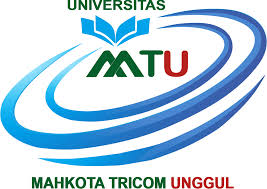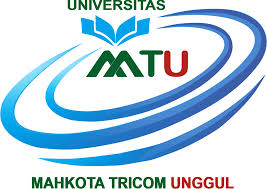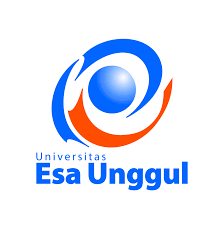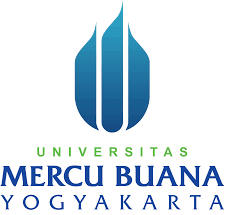A Model of Teaching Metacognition in Solving Mathematical Word Problems
DOI:
https://doi.org/10.55927/ijcs.v1i11.11591Keywords:
Metacognition, Teaching Metacognition, Mathematical Word ProblemsAbstract
This qualitative study aimed to propose a model for teaching metacognition in solving mathematical word problems, utilizing a Multiple Case Study Method. The research explored how teachers employ metacognitive strategies, focusing on two components: knowledge of cognition and regulation of cognition. The findings suggest that metacognitive instructional techniques enhance students' mathematical knowledge and problem-solving abilities. Teachers who incorporate various metacognitive strategies help students develop their own learning skills and create conditions for meaningful learning. The study concludes that connecting metacognitive teaching approaches makes math problem-solving more significant. The proposed model allows teachers flexibility in applying strategies based on their circumstances and students' needs. Importantly, the research emphasizes that mathematics teachers must have a thorough understanding of mathematical concepts to effectively implement metacognitive methods.
Downloads
References
Abdullah, M. H. (2001). Self-directed learning (ERIC digest No. 169). Bloomington, IN: ERIC Clearinghouse on Reading, English, and Communication. Retrieved from http://www.auburn.edu/~witteje/ilsrj/Journal%20 Volumes/Fall%
Ader, E. (2013). A framework for understanding teachers' promotion of students' metacognition. International Journal for Mathematics Teaching and Learning. http://www.cimt.org.uk/journal/ader.pdf. Retrieved 07 September 2019.
Ader, E. (2019). What would you demand beyond mathematics? Investigating teachers‟ promotion of students‟ self-regulated learning and metacognition. ZDM Mathematics Education, 51(4), 613-624. https://doi.org/10.1016/j.sbspro.2014.09.158
Akyol, Z., & Garrison, D. R. (2011). Assessing metacognition in an online community of inquiry. Internet and Higher Education, 14(3), 183–190. https://doi.org/10.1016/j.iheduc.2011.01.005
Anghileri, J. (2006). Scaffolding practices that enhance mathematics learning. Journal of Mathematics Teacher Education, 9, pp. 33–52.
Artzt, A. F., & Armour-Thomas, E. (1992). Development of a cognitive-metacognitive framework for protocol analysis of mathematical problem solving in small groups. Cognition and Instruction, 9(2), 137-175.
Baker, L. (2008). Metacognitive development in reading: Contributors and consequences. Reading strategies of first and second language learners: See how they read. Norwood, Retrieved from http://www.education.com/reference/article/metacognition
Brown, A. L. (1980). Metacognitive development and reading. In R. J. Spiro, B. C. Bruce, & W. F. Brewer (Eds.), Theoretical issues in reading comprehension (pp. 453–482). Hillsdale, NJ: Erlbaum.
Conference Board of the Mathematical Sciences. (2001). The mathematical education of teachers. Washington, DC: American Mathematical Society.
Conference Board of the Mathematical Sciences. (2012). Issues in mathematics education: Vol. 17. The mathematical education of teachers II. Providence, RI: American Mathematical Society.
Cubukcu, F. (2008). Enhancing vocabulary development and reading comprehension through metacognitive strategies. Issues in Educational Research, 18(1), 1-11. Retrieved from http://www.iier.org.au/iier18/cubukcu.pdf
Flavell, J. (1976). Metacognitive aspects of problem solving. In L. F. Resnick (Ed.), the nature of intelligence (pp. 231–235). Hillsdale: Lawrence Erlbaum Associates.
Flavell, J. (1979). Metacognition and cognitive monitoring: A new area of cognitive developmental inquiry. American Psychologist, 34(10), 906-911.
Goos, M., Galbraith, P., & Reenshaw, P. (2000). A money problem: A source of insight into problem solving action. International Journal for Mathematics Teaching and Learning. 80.
Gopinath, S. (2014). Metacognitive Awareness in Teaching and Teaching Competency: A Survey on Student Teachers at Secondary Level. IOSR Journal of Research & Method in Education (IOSRJRME), 4(4), 33–35. https://doi.org/10.9790/7388- 04453335
Haiduc, L. (2011). Reading science textbooks: The role of metacognition in reading comprehension. International Conference on Languages, Literature and Linguistics. IPEDR, 26,550-555. Retrieved from http://www.ipedr.com/vol26/110- ICLLL%202011-L10197.pdf
Hall, L. (2004). Comprehending expository text: promising strategies for struggling readers and students with reading disabilities. Reading Research and Instruction .44(2), 75-95. Retrieved from http://www.ipedr.com/vol26/110- ICLLL%202011-L10197.pdf
Haskell, R., (2001). Transfer of Learning. Academic Press, San Diego.
Iiskala, T., Vauras, M., & Lehtinen, E. (2004). Socially shared metacognition in peer learning? Hellenic Journal of Psychology, 1, 147–178.
Karpicke, J. (2012). Retrieval-based learning: active retrieval promotes meaningful learning. Curr. Dir. Psychol. Sci. 21 (3), 157–163.
Kramarski, B. (2008). Promoting teachers’ algebraic reasoning and self-regulation with metacognitive guidance. Metacognition and Learning, 3(2), 83– 99.
Kuhn, D. (2000). Metacognitive development. Current Directions in Psychological Science, 9(5), 178-181.C
Kuhn, D., & Dean, D. (2004). A bridge between cognitive psychology and educational practice. Theory into Practice, 43(4), 268-273.
Lee, C. B., Teo, T., & Bergin, D. (2009). Children’s use of metacognition in solving everyday problems: An initial study from an Asian context. Australian Educational Researcher, 36(3), 89–102. https://doi.org/10.1007/BF03216907
Lester, F. K. (1982). Building bridges between psychological and mathematics education research on problem solving. In F. K. Lester & J. Garofalo (Eds.), Mathematical problem solving (pp. 55–85). Philadelphia: The Franklin Institute Press.
Lucangeli, D., & Cornoldi, C. (1997). Mathematics and metacognition: What is the nature of the relationship? Mathematical Cognition, 3(2), 121- 139.
Mayer, R. (2002). Rote versus meaningful learning. Theory Pract. 41 (4), 226–232.
Mestre, J. (2002). Transfer of Learning; Issues and Research Agenda (Report of a workshop held at the National Science Foundation: Department of Physics). University of Massachusetts, Amherst.
Mevarech, Z. R., & Kramarski, B. (2003). The effects of metacognitive training versus worked out examples on students’ mathematical reasoning. British Journal of Educational Psychology, 73(4), 449– 471.
Mintzes, J., Wandersee, J., & Novak, J., (2005). Epilogue: meaningful learning, knowledge restructuring and conceptual change: on ways of teaching science for understanding. In: Mintzes, J.J., Wandersee, J.H., Novak, J.D. (Eds.), Teaching Science for Understanding. Academic Press, San Diego, CA, pp. 327–350.
Ozturk, M., Akkan, Y., & Kaplan, A. (2020) Reading comprehension, mathematics self-efficacy perception, and mathematics attitude as correlates of students‟ non-routine mathematics problem-solving skills in Turkey. International Journal of Mathematical Education in Science and Technology, 51(7), 1042- 1058.
Philipp, R., Ambrose, R, Lamb, L., Sowder, J., Schappelle, B., & Sowder, L. (2007). Effects of early field experiences on the mathematical content knowledge and beliefs of prospective ele- mentary school teachers: An experimental study. Journal for Research in Mathematics Education, 38, 438–476.
Rahman, F. (2011). Comparison of Teachers and Students Self Perception About Metacognition. Empirical Evidence from Pakistan, 7(2), 292–310.
Schoenfeld, A. (1987). What’s all the fuss about metacognition? In A.H. Schoenfeld (Ed.), Cognitive Science and Mathematics Education. Hillside, New Jersey: Lawrence Earlbaum Associates.
Schoenfeld, A. H. (1983). Learning to think mathematically: Problem solving, metacognition, and sense making in mathematics. In D. A. Grouws (Ed.), Handbook of research on mathematics teaching and learning (pp. 334–370). New York: Macmillan.
Schraw, G. & Moshman, D. (1995). Metacognitive theories. Educational Psychology Review, 7(4), 351-371.
Schraw, G. (1998). Promoting general metacognitive awareness. Instructional Science, 113-125.
Schraw, G., Crippen, K. J., & Hartley, K. (2006). Promoting self-regulation in science education: Metacognition as part of a broader perspective on learning. Research in Science Education, 36(1–2), 111–139. https://doi.org/10.1007/s11165-005-3917-8
Terry, W. (2006). Learning and memory: basic principles, processes and procedures. Third edition Allyn and Bacon, Boston/Upper Saddle River.
Thames, M., & Ball, D. (2010). What math knowledge does teaching require? Teaching Children Mathematics, 17(4), 220-229.
Verschaffel, L. (1999). Realistic mathematical modelling and problem solving in the upper elementary school: Analysis and improvement. In J. H. M. Ha- mers, J. E. H. Van Luit, & B. Csapo (Eds.), Teaching and learning thinking skills. Contexts of learning (pp. 215–240). Lisse: Swets & Zeitlinger.
Watson, A., & De Geest, E. (2005). Principled teaching for deep progress: Improving mathematical learning beyond methods and material. Educational Studies in Mathematics, 58, 209–234.
Watson, A., & Mason, J. (2006). Seeing an exercise as a single mathematical object: Using variation to structure sense-making. Mathematical Thinking and Learning, 8, 91–111.
Zawilinski, L. (2009). HOT Blogging: A Framework for Blogging to Promote Higher Order Thinking. The Reading Teacher, 62(8), 650–661. https://doi.org/10.1598/rt.62.8.3
Downloads
Published
How to Cite
Issue
Section
License
Copyright (c) 2024 Joseph D. Reyes, Zenaida Q. Reyes

This work is licensed under a Creative Commons Attribution 4.0 International License.
























